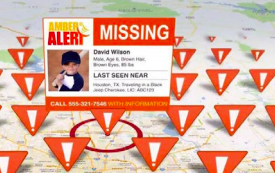Data: Our Super Power in the Age of Disruption

We live in an age of disruption, with technological, societal and environmental changes impacting the global marketplace at an unprecedented pace. As a data company, we have unique insight into these changes, along with the challenges and opportunities they present for business and society alike.
We know the power of our technologies and data analytics capabilities, and we believe there’s huge potential to leverage them for social good. As such, in 2017, we set a goal to invest $20 million by 2020 in initiatives that harness the power of data to advance their work and drive measurable impact in solving societal problems. With each grant, we evaluate how the use of data and technology can advance a nonprofit’s ability to deliver social impact. We also give our associates opportunities to hone their skills and pursue their passion for solving pressing societal issues. Technology will continue to change the world as we know it. We aim to make it a change for the better.
“Disruptive technologies aren’t just reshaping the business landscape, they’re also redefining how nonprofits operate. This is why Alliance Data and our businesses are committed to investing in data analytics and technology resources that help solve pressing social issues.” Bryan Kennedy, Executive Vice President, President and Chief Executive Officer, Epsilon/Conversant.
Using the same technology that can tell when you arrive near your favorite store, Conversant founded the Federation for Internet Alerts (FIA) to send geo-targeted AMBER Alerts and storm warnings based on your location. In 2017, FIA had 1 billion impressions; it also launched weather warnings in Canada, worked with New York’s municipal transit authority to integrate alerts across all NYC public transportation, and delivered more than 12 million alerts during hurricanes Harvey and Irma. The more alerts, the more likely we are to keep people safe.
Separately, our Epsilon business invested in a client data-tracking tool for the San Francisco–Marin Food Bank. In much the same way we leverage data to help give our clients deeper insights into their customers, the tool helps the food bank better understand its clients, while managing and distributing resources more efficiently. In 2016, we made a similar investment in the Northern Illinois Food Bank. In both cases, our associates amplified company contributions by helping sort and pack goods in food bank warehouses.
We also support children’s hospitals through the development of a databank architecture that allows providers and researchers to lead public health initiatives and enable collaborations through data sharing. Ultimately, this “big data” repository will help improve patient outcomes and the overall health of the community.
To learn more about how Alliance Data operates responsibly, check out our 2017 Corporate Responsibility Report.

